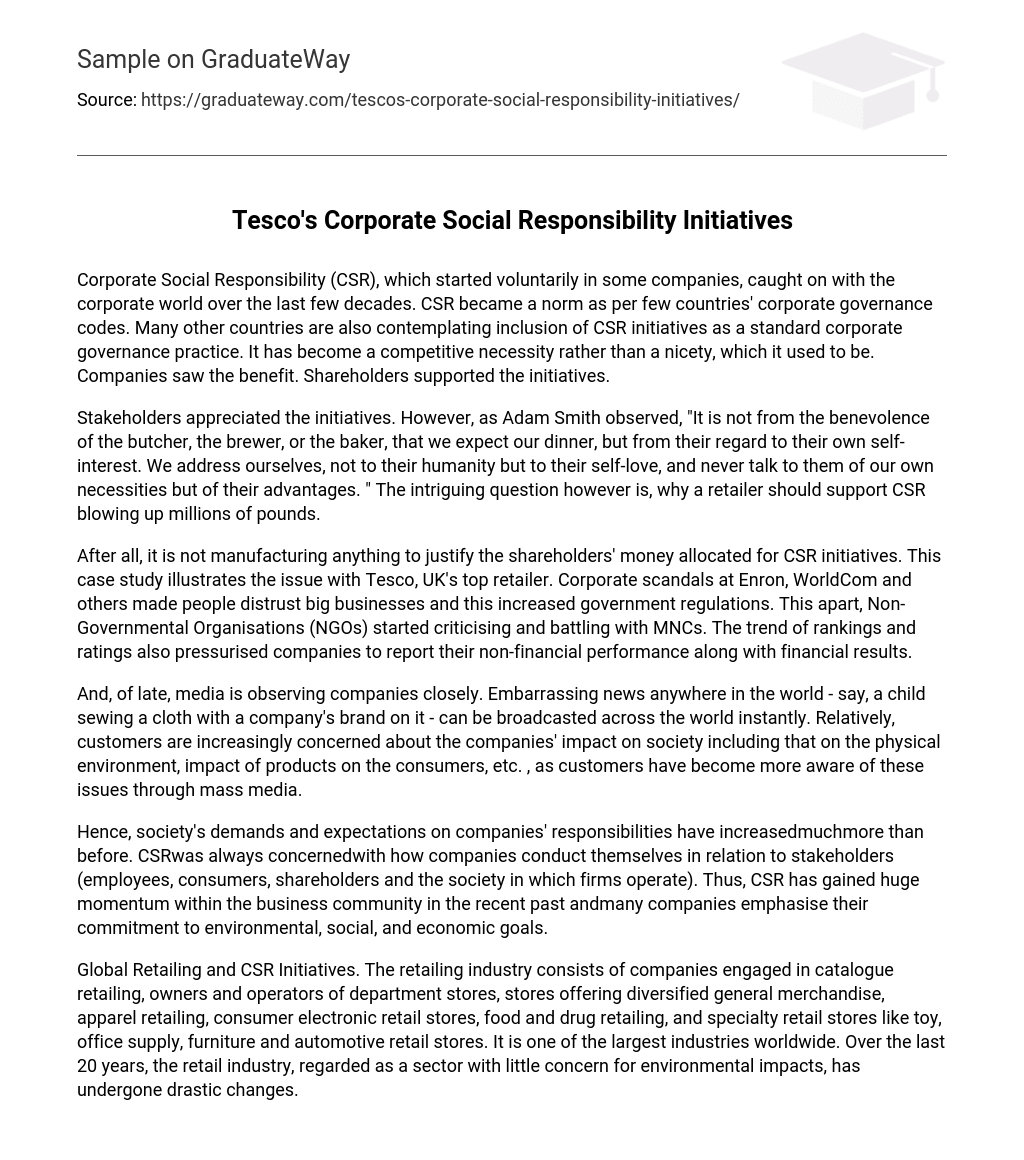Corporate Social Responsibility (CSR) has become increasingly popular in the corporate realm in recent decades, transitioning from a voluntary practice to a standard one in some countries, with others contemplating its adoption. Previously regarded as a mere act of goodwill, it is now imperative for companies to ensure their competitiveness and reap the advantages associated with CSR. Shareholders also lend their support to these endeavors.
Despite stakeholders being satisfied with the initiatives, there is still an important question that needs to be answered: why should a retailer spend millions of pounds on supporting CSR? As Adam Smith famously stated, “We do not rely on the butcher, the brewer, or the baker’s kindness for our dinner; we appeal to their self-interest. We don’t talk about our own needs but rather emphasize their benefits.”
The proper use of funds allocated for corporate social responsibility (CSR) initiatives is vital for companies. Tesco, the UK’s top retailer, serves as a commendable example in this aspect. The trust in major corporations has been diminished following scandals at Enron, WorldCom, and similar cases, resulting in stricter government regulations. Non-Governmental Organizations (NGOs) have also grown more critical and confrontational towards multinational corporations (MNCs). Moreover, rankings and ratings now play a role in compelling companies to disclose both their financial performance and non-financial accomplishments.
Mass media has led to constant scrutiny of companies, as negative news can quickly spread globally. For instance, a child sewing a garment with a company’s logo can instantly be shared worldwide. Consequently, customers today are more curious about the societal impact of companies, including environmental issues and the effect their products have on consumers. This heightened awareness is largely attributed to mass media.
As societal demands and expectations rise, companies are under greater pressure to fulfill their responsibilities. Corporate Social Responsibility (CSR) has traditionally centered on how companies interact with stakeholders such as employees, consumers, shareholders, and society at large. As a result, CSR now plays a key role in the business world, with many companies actively showcasing their commitment to environmental, social, and economic goals.
The retailing industry, including catalogue retailing, department stores, diversified general merchandise stores, apparel retailing, consumer electronic retail stores, food and drug retailing, and specialty retail stores like toy, office supply, furniture, and automotive retailers, is a significant global industry. Despite its previous indifference towards the environment over the past two decades it has undergone substantial transformations.





